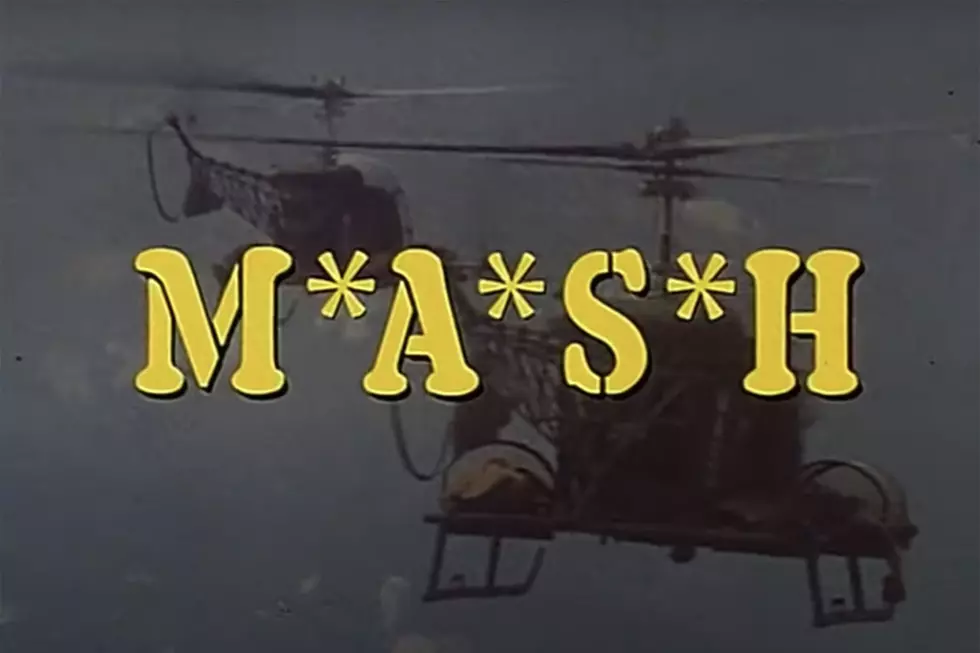
50 Years Ago: A Very Different ‘M*A*S*H’ Makes Its Debut
There was something special about M*A*S*H from the moment the pilot episode aired Sept. 17, 1972, on CBS, if only just below the surface.
The show at first seemed to be another well-executed service sitcom in the style of many that had gone before. Over the course of its 11-season run, a depth would come to the fore. But early episodes concentrated mainly on comedy, despite the dramatic background provided by a show about doctors at a mobile Army hospital in 1950 during the Korean War.
Viewers first met these characters in a 1968 book by Richard Hooker, which was then followed by a successful 1970 M*A*S*H movie. The small-screen versions were introduced with the wisecracking duo Hawkeye Pierce (Alan Alda) and Trapper John McIntyre (Wayne Rogers) trying to raise money for a young Korean man’s education in the U.S. by staging a sweepstake. Top prize was a weekend of R&R with a sexy nurse – with hilarious consequences.
Some deeply outdated lines included Pierce calling Maj. Margaret ‘Hot Lips’ Houlihan (Loretta Swit) “baby,” then being ordered to address her by rank. “Sorry, major baby,” he responds. He later describes Lt. Dish, the sexy nurse in question, as “a girl with so much body she should be continued on the next girl.” When she tells him she’s engaged, he counters: “I’m engaged too – think of me as a dress rehearsal.”
Despite how it might have aged, the show was written well enough by Larry Gelbart and directed well enough by Gene Reynolds to be nominated for two Emmys, while Reynolds won a Directors Guild of America award.
Watch the ‘M*A*S*H’ Pilot Opening
Besides, there were much better lines to be found elsewhere. “We’ve all had 12 straight hours of meatball surgery in there,” Hawkeye tells Maj. Frank Burns (Larry Linville). “You must be tired too after all that malpractice you put in.” Burns himself angrily tells a nurse who carried out his incorrect instructions: “Give me what I want, not what I asked for!”
A reflective Hawkeye suggests: “We gotta do it someday – throw away all the guns and invite all the jokers from the north and the south in here to a cocktail party. Last man standing on his feet at the end wins the war.” When Pierce and McIntyre’s cunning plan lands them in trouble but their operating-room expertise gets them back out of it, Hawkeye notes: “We got to give up this preoccupation with keeping people alive, or we'll never get out of here!”
Hints at the possibility of a more serious future for M*A*S*H could be found in Hawkeye’s narrated letter to his dad near the beginning of the episode: “This particular mobile Army hospital, we’re not concerned with the ultimate reconstruction of the patient. We only care about getting the kid out of here alive enough for someone else to put on the fine touches. We work fast, and we’re not dainty because a lot of these kids who can stand two hours on the table just can’t stand one second more. We try to play par surgery on this course. Par is a live patient.”
Alda almost immediately became the breakout performer in what had been planned as an ensemble show, leading to several cast departures, including Rogers and McLean Stevenson’s Lt. Col. Blake. Already an award-winning Broadway actor, he’d been impressed by the first script and became determined to win the part of Pierce because he wanted to mine the M*A*S*H concept for its dramatic potential.
Watch the ‘Major Baby’ Scene From ‘M*A*S*H’ Pilot
“It was really sharp, you know?” Alda told NPR in 1997. “But I was concerned about what would happen after the show went into production. I was worried that it would become a ‘high jinks at the front,’ and that the war would just sort of exist as a pretext for silly stories.” Of course, that’s exactly what happened sometimes.
“Freelance writers – who didn’t know what the possibilities were and were sure that on television you don't go for anything substantive – wrote, in essence, McHale’s Navy in Korea … and it really scared me at that point,” Alda admitted. “But by then we had already had an agreement. We all agreed that we wanted to do a show in which the war was seen for what it is – a place where people are badly hurt. And the humor came out of the reaction to that. The humor came out of the crazy pressure everybody was put under.”
Lead writer Gelbart later recalled his constant battles with the studio as he fought to force his own standards into the commercial property that was M*A*S*H. For instance, he didn’t want a laugh track in the show. What followed was “outrage, anger – on a good day, mere frustration,” he told Vanity Fair in 2009. “The one concession from the network was to permit us to never have the laugh track in any operating-room scenes.”
Some broadcasters were offered the option of including the canned laughter or leaving it out. One episode was accidentally broadcast by the BBC in the U.K. with the laughter included, leading to thousands of complaints from an audience who’d never experienced the show like that before.
Watch the ‘Lt. Dish’ Scene from ‘M*A*S*H’ Pilot
“If you've ever watched it without a laugh track, well, that's the show as we intended it to be watched,” Gelbart added. “We did not mean for people to be cackling throughout the show. It becomes so much more cynical and heartbreaking without all that cheap, mechanical laughter.”
The pilot episode of M*A*S*H kicked off a satisfactory first season: The show ranked 46th. Later seasons never left the Top 10 rankings. By the time it ended with the 1983 TV movie Goodbye, Farewell and Amen, Gelbart was long gone and Alda – who wrote and directed a number of later episodes – had brought the darkness and drama to center stage.
Over its run, M*A*S*H won 14 Primetime Emmys and eight Golden Globes, but that was all in the future. First, everyone had to prove that a show with the subtext “war is hell” had a right to its 8PM Sunday slot on the schedule. Of course, M*A*S*H did prove that – and it’s often argued that the show helped contribute to bringing the Vietnam War to a close.
“I wanted to be able to work in material that I cared about,” Alda said. “I wanted to work with actors that I respected, and I wanted to do that in front of an audience that would get it – you know, that would appreciate the rich material, something that wasn't just a lot of foolishness.” He recalled that his father once wanted Alda to go to medical school, but had to settle for him being best known for playing a doctor on TV. “He was finally satisfied with that,” Alda added.
28 Classic Films That Were Turned Into (Mostly Failed) TV Shows
More From WGBFAM










